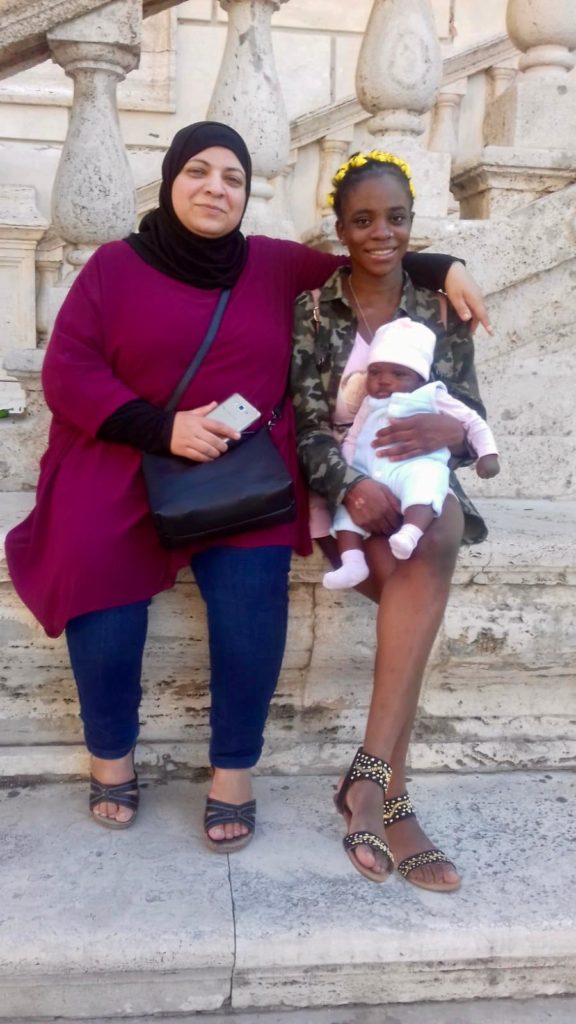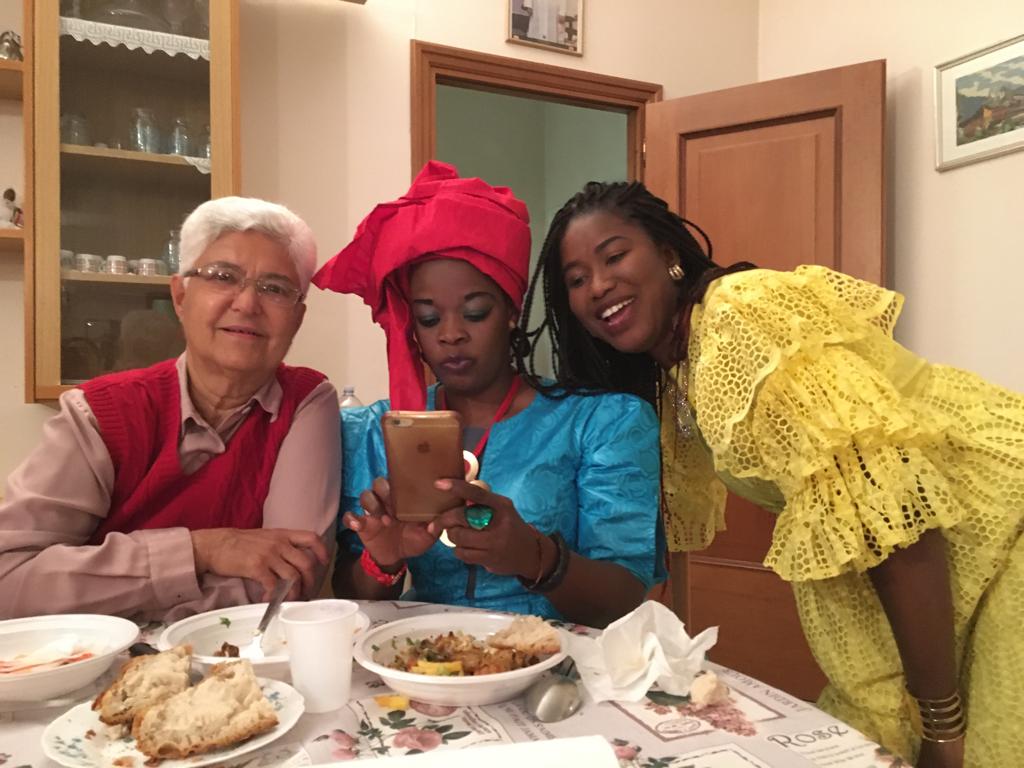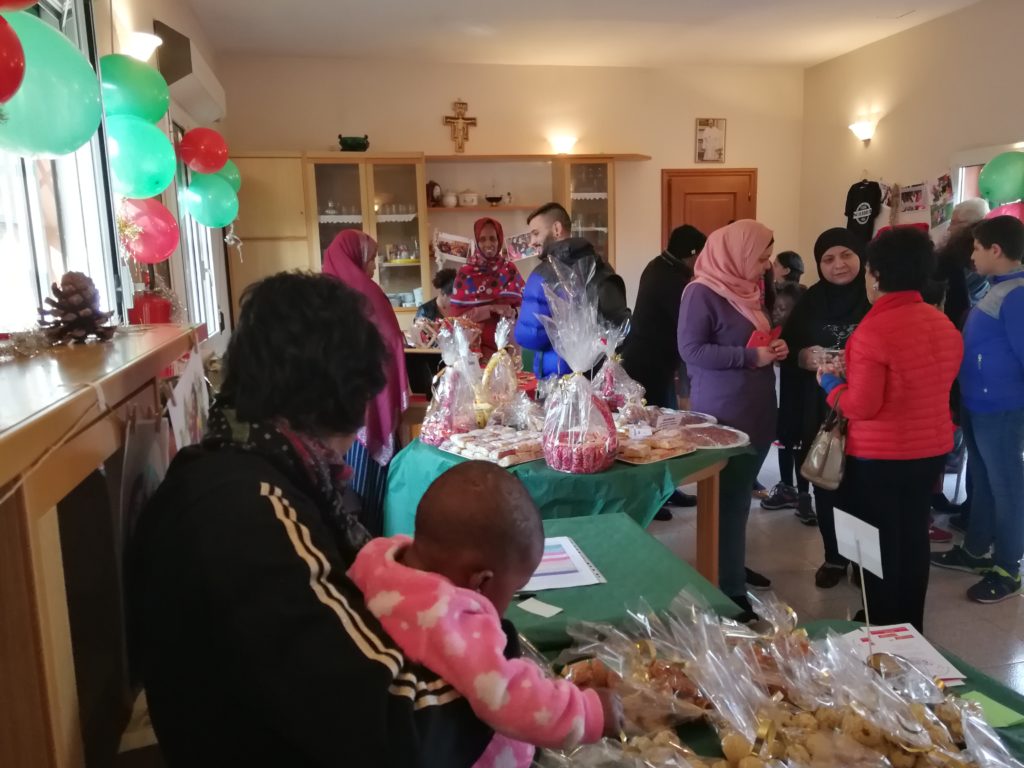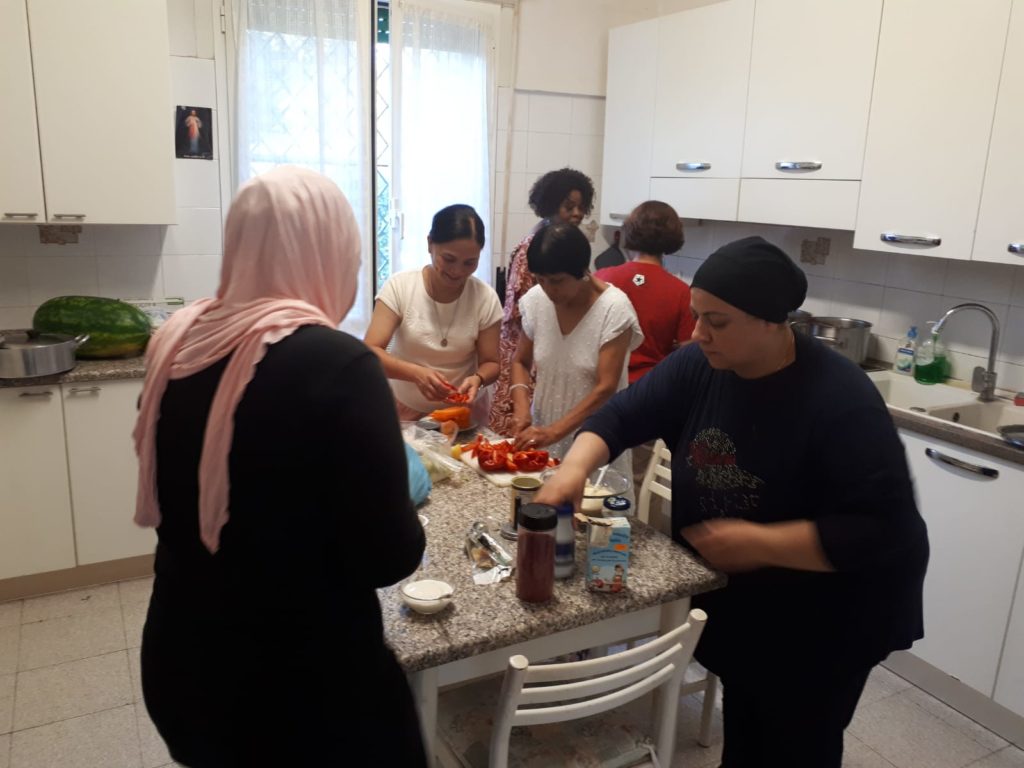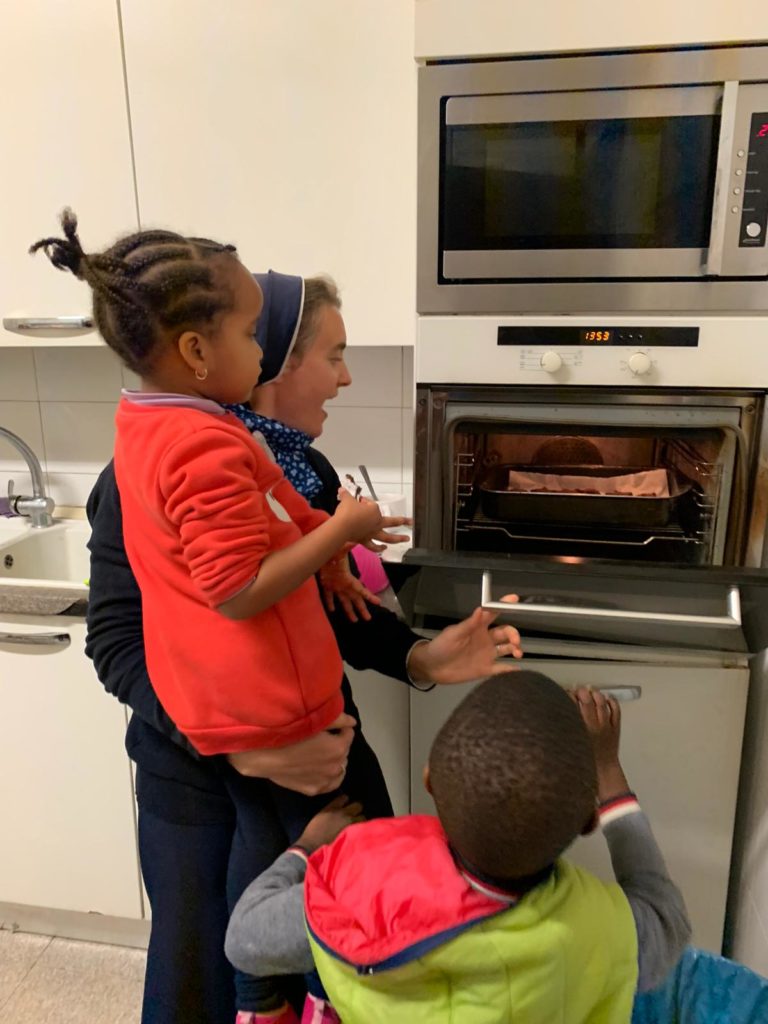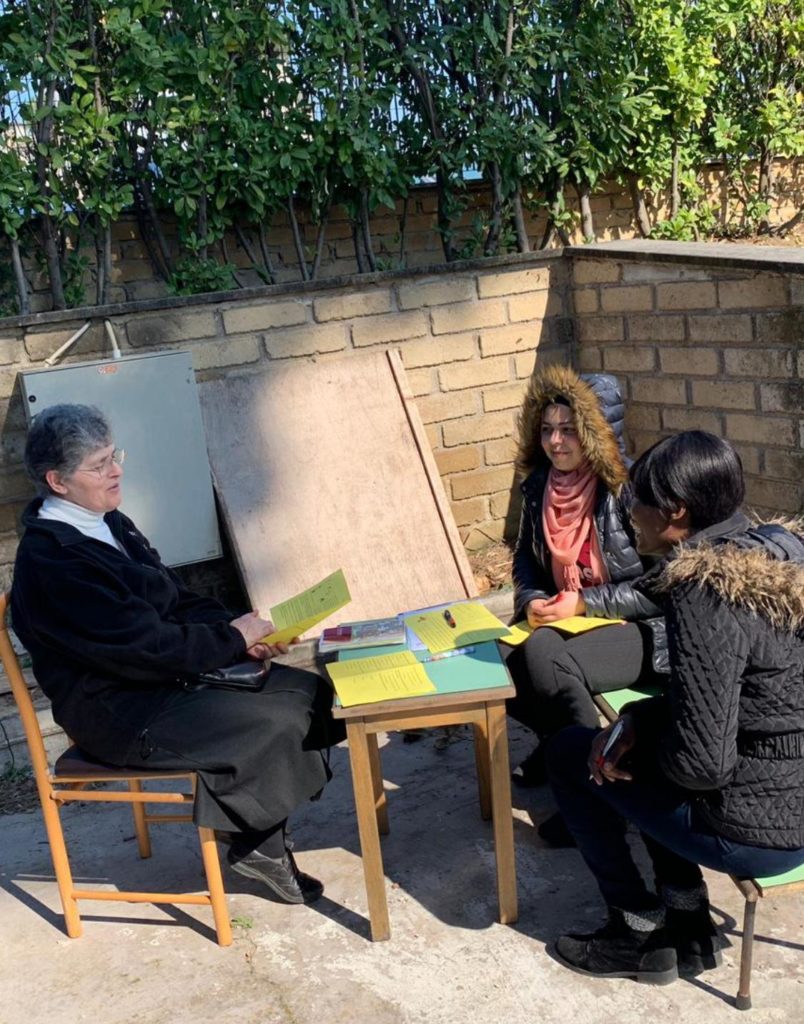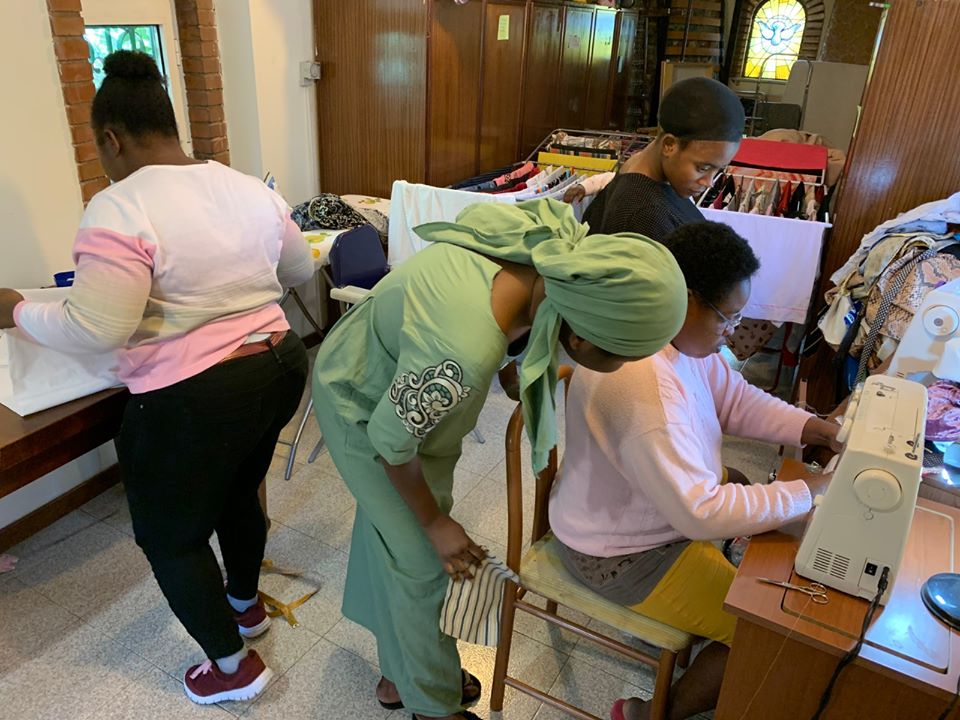About twenty days ago, we the MSCs celebrated the canonization of Father John Baptist Scalabrini in St. Peter’s Square with the Scalabrinian family. Scalabrini and Mother Cabrini were indeed two important individuals, at that time. They had in common a special attention to migrants. After founding the Institute of the Missionaries of the Sacred Heart of Jesus in 1880, on March 19, 1889, Mother Cabrini, close to her 40s, received the Cross of Missionaries from Monsignor Scalabrini in the convent of Codogno, together with six other religious women. Providence made the paths of Mother Cabrini and Scalabrini intersect again when the Bishop made her aware of the need to assist Italian migrants in America. America was not the China she dreamt of, but her missionary ideal could be realized just the same. Indeed, the rapid development of the Cabrini institution, the foundations, the fame of the skills of St. Frances Cabrini, the many young girls who asked to join her Institute, had drawn the attention of the Bishop of Piacenza, Monsignor John Baptist Scalabrini, who invited her to devote herself to the Italian migrants who left for the Americas by the thousands in search of fortune and who lived in desperate conditions, especially in North America. It was precisely with her meeting with Scalabrini, that she took to heart helping Italian migrants in the Americas. By publishing his booklet “The Italian migrant in America”, Scalabrini was the first to denounce the terrible conditions the Italian migrants lived in. The Bishop had a project aimed at the moral building of that uprooted and despised humanity: to preserve the Italian spirit, by making «our church and school» be found everywhere. And so the “Missionary Sisters of the Sacred Heart” arrived in New York to collaborate with the Scalabrinian Missionaries. Mother Cabrini was accompanying her sisters and she wrote to the Bishop of Piacenza from the Big Apple, praising the zeal of his Missionaries “towards the poor Italians”. After some difficulties, she was well received by Archbishop Corrigan. She wrote, “he seems to bring us special help in all our works”. Scalabrini informed Cardinal Simeoni of the sisters’ arrival in New York, reporting that “they would successfully open an orphanage for Italian orphans and schools”.
Father Scalabrini and Mother Cabrini are respectively named father and mother of migrants. St. Frances Cabrini, Patroness of migrants, founded a mission out of her work of protection, attention and care. For this reason, the missionary vocation of the MSCs was addressed primarily to migrants and refugees. There are many centers in our Congregation that deal with migrants and refugees. Currently binding these two congregations, among others, there is the Chaire Gynai project. It was precisely the cooperation between the congregations of the Missionary Sisters of the Sacred Heart of Jesus and the Missionary Sisters of St. Charles Borromeo, Scalabrinians, that made it possible to implement this project, as desired by Pope Francis. This is a semi-autonomous program aimed at refugee women (with children) and migrant women in vulnerable situations that began in June 2018. Every activity takes place in one facility in Rome belonging to the Missionary Sisters of the Sacred Heart of Jesus, who loaned them for the project at no charge. From the outset, this program has benefited from the valuable collaboration of various female religious congregations.
Since the project began, about 60 people have been welcomed and accompanied. The mission and the goal are based on the four verbs presented by Pope Francis: welcome, promote, protect and integrate. According to the Pastoral Guidelines on internally displaced people, they “describe the mission of the Church towards everyone who lives in the existential peripheries and in concrete situations of danger and who needs to be welcomed, protected, promoted and integrated.”
The migrant and refugee women participating in the project receive support in their essential needs, which concern their children’s schooling, health care, personal documents, job search, home search or other specific needs.
Welcome_ During the welcoming, migrant and refugee women find a space of care and protection, where they feel safe and take the necessary time to review their personal story but, at the same time, they can get in touch with the social context they arrived in and plan a new life course.
Promote_ The presence of refugee and migrant women in vulnerable situations can influence the entire community which can be oriented according to the testimony and implementation of the Project with processes/actions of awareness and information addressed to the local population for a human and Christian vision of human mobility.
Protect_ The project is also characterized by family coexistence and sharing, considering the fundamental need for human and humanizing relationships between the participants. Interesting interactions are created with migrant volunteers: these volunteers, now fully integrated in the local context, pass down to women their experience and provide them with advice on how to improve and better enjoy their resettlement experience.
Integrate_ In this project, integration is fundamental, since it allows refugee and migrant women to fully participate in the life of the community that welcomes them, in a path of mutual enrichment and fruitful participation,promoting the integral human development in the local society.
Achieving results with this mission is possible through the building of personal projects for autonomy, considering the resources, abilities, experience and skills of each woman, in view of her own work integration and social inclusion.
The Chaire Gynai project is carried out in coordination with the Migrants and Refugees Section of the Dicastery for the Service of Integral Human Development, the CEI, the Congregation for Institutes of Consecrated Life and Societies of Apostolic Life, the USMI and the Migrants Office of the Diocese of Rome.
